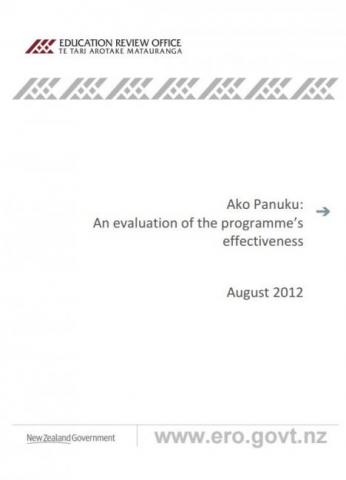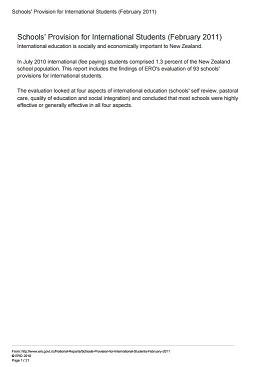Ako Panuku: An evaluation of the programme’s effectiveness
Published: 02 Aug 2012
This evaluation looks at the Ako Panuku programme, which is funded by the Ministry of Education for Māori secondary/kura teachers. ERO conducted an online survey of all teachers involved in the programme and also visited a number of schools and kura. Our findings show that a high proportion of teachers found the programme to be highly effective or effective for them. Ako Panuku has had positive outcomes for participants and their students.
- Audience:
- Māori-medium
- Parents
- Schools
- Content type:
- Research
- Topics:
- Ako Panuku
- Evaluation
- Kura
- Teachers | Kaiako
- Māori secondary teachers


